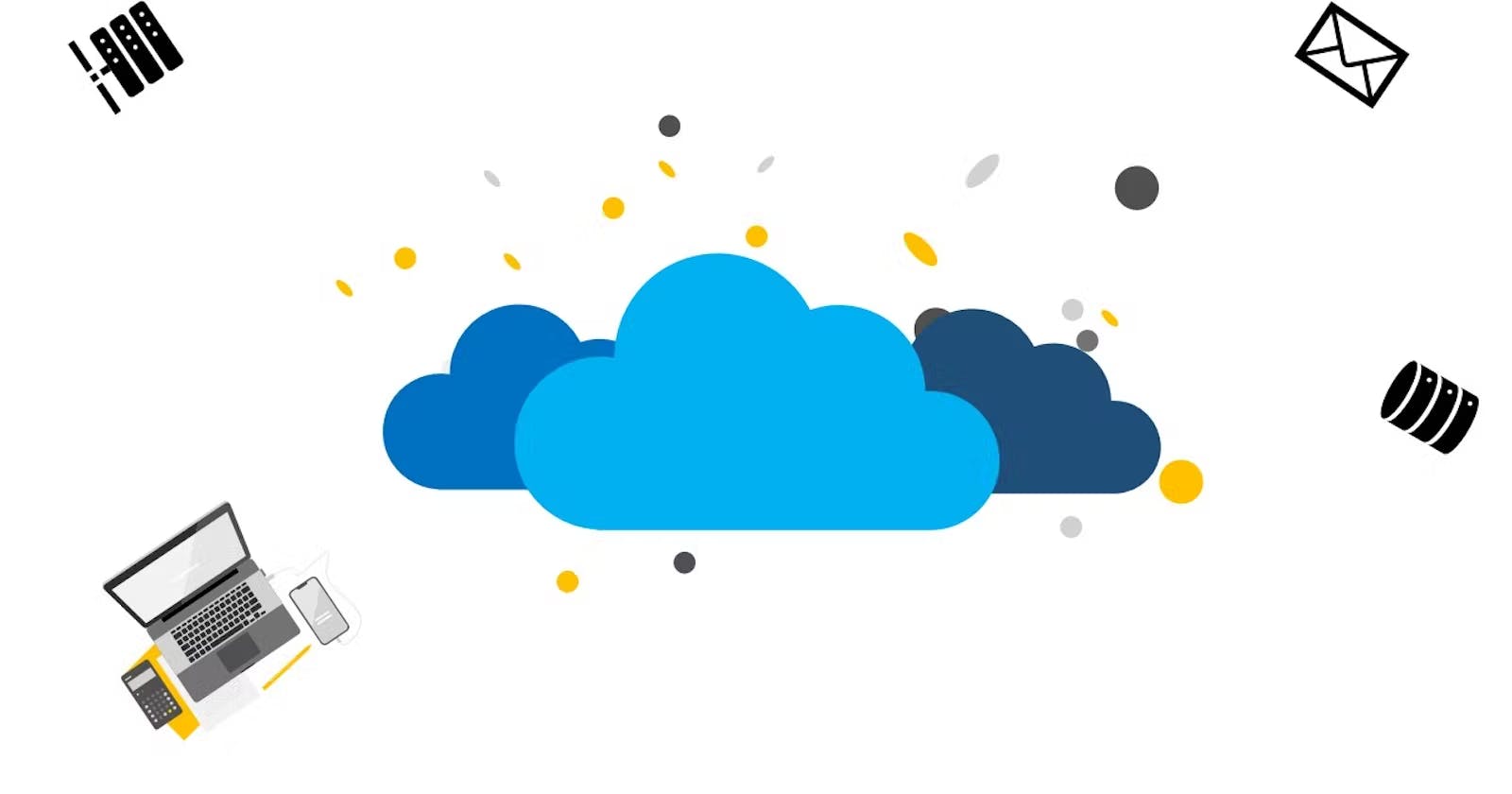Cloud Computing and Managed Services: The Thin Line in Between
Managed Services vs. Cloud Computing: What's the Difference?
Whether you believe it or not, at some point in your life, you have utilized the conveniences of cloud computing. You may have noticed the terms "Cloud Computing" and "Managed Services" are often used interchangeably; there does exist a hazy line between the two that has more to do with the scope of services rather than the technology itself.
Let's dive deeper into what these two terms actually mean, what their benefits are and which one can your business benefit more from.
What is Cloud Computing?
"Cloud" is a contemporary term in the technology sector that basically refers to storage spaces hosted over the Internet. Anything that you upload to your cloud gets stored remotely on servers hosted by storage service providers through the Internet.
Cloud computing, as such, is a method of computing that utilizes the networking and processing capabilities of this cloud - a whole infrastructural setup of databases, software & analytics, and storage, managed by a third party on its high-performance servers.
All you need to be able to utilize cloud computing is a stable internet connection and a good cloud service provider who offers the functionalities that you need. Everything from software to collaborative work environments can be set up and run on the cloud, making it even more relevant for the remote-working trend today. Not surprisingly, the global spend on the services for cloud infrastructure was $129.5 billion in 2020 alone!
Features of Cloud Computing
Cloud computing has certain thoroughly useful features that make it the go-to solution for all things technological in a company. Let's see what they are.
Multi-tenancy
Cloud service providers have a sturdy IT infrastructure that is capable of providing services to multiple users/organizations at the same time. Depending on the needs of a client, the cloud computing provider manages the distribution of resources such that everything works optimally with minimal deployed resources.
Self-Service
Cloud computing comes with tools that enable the users to monitor logs they undertake on the cloud by themselves - whether storage, performance, server up/downtimes, etc. It creates an independent system of supervision which some organizations find highly favorable.
Easy and Low maintenance
Cloud computing is a service hosted remotely and managed by a third party, reducing the maintenance required for the user and simplifying it down to the last bit.
On-The-Go
The best feature of cloud computing is that there is no need to stay tied down to physical infrastructure for accessing the service. The cloud goes with you everywhere you go, on any and every device you carry.
Economy
There is no longer a need to invest in setting up expensive servers and data centers for storing and managing your data. Just transport it to a cloud!
Such impressive features can be accessed through a Managed Service Provider. Let's look into that now.
Managed Services
The IT infrastructure at your company has multifaceted requirements with respect to maintenance and up-gradation. Chances are that you have an in-house team to look after IT infrastructure, security protocol, encryption, network quality, backups, and restoration, etc. Managed IT service providers take all of these responsibilities off your shoulders by providing you with a ready environment incorporated with everything mentioned above through cloud computing.
In exchange for having a managed service provider look after all of this, you pay a fee to these professionals or agencies. There are agencies that work on a contractual basis or offer subscriptions to their services as a pick-from-the-shelf thing.
Managed services offer cloud computing to you for a fee. Depending on the requirements of your company, you have the freedom to pick which services you need.
Features of Managed Services
Here is a list of the best features of managed services.
Testing and Monitoring of Network
Managed services come equipped with tools and functions to help monitor and test various aspects of the cloud networks, from queries to pings and much more.
Risk Mitigation and Security Management
Everything that includes the security and safeguarding of a company's data falls under the ambit of managed services. If you wish to revamp the IT security of your company, you can get these services exclusively with managed services.
Data Storage and Backup
You get data storage space, backup, and restore functionalities with managed services on demand. Some packages give certain data limits as part of the deal with additional space available with either upgrades or purchases.
Performance Monitoring and Improvement
Your company gets equipped to monitor the processes and workflows happening over the cloud for efficiency and areas of improvement.
Latest Software
Managed services ensure that their infrastructure is always equipped with the latest versions of software that they provide to the clients. Handling installation and upgrading to the latest patch are all responsibilities of the managed service provider.
Cloud Computing or Managed Service Provider - Which One Should You Choose?
Apart from the scope of work-eligible in cloud computing and managed services, there is hardly any difference between the two. Both operate over the internet and virtual infrastructure - the only thing that is different is how much they offer on the table.
A managed service provider is the more "holistic" option as compared to cloud computing. If your business already has all the IT processes and protocol in place, investing again in managed services isn't a very economical option.
On the other hand, cloud computing provides only the services involved with servers - storage, database management tools, backups, restore, data synchronization, real-time operability, 24x7 access. etc. The kind of service you choose should take into consideration the existing extent of services already present at your company.
Opt for cloud services if all other arrangements are already in place; opt for managed services if your organization needs to outsource the IT infrastructure from scratch.
Conclusion
In 2021, $1177 billion were spent on IT services worldwide. The convenience and economy that cloud computing and managed services have brought to the world are insurmountable. From being the enablers of remote, real-time work capabilities to reducing the physical infrastructure load on companies, from bringing the latest software access to the clients to keeping the systems updated, there is no cap on the capabilities of cloud computing and manages service providers.

